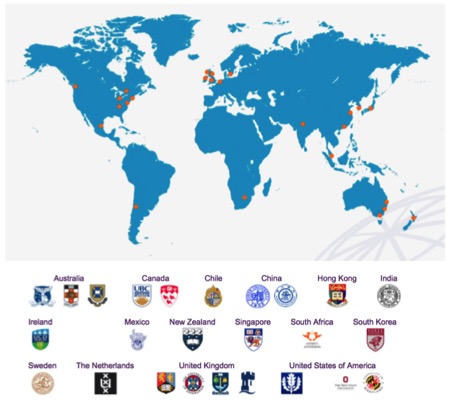U21/International
Why Language Science is International
The study of language spans the world’s 7000+ languages and speaker communities. Language science is crucial to solving global problems in education, technology and healthcare. Addressing the biggest questions in language science requires the world’s best expertise from multiple disciplines. With our interdisciplinary community of globally engaged researchers, focus on outreach and policy, and our location just outside of Washington DC, LSC is ideally positioned to lead international collaborations in the rapidly growing field of language science. LSC has a long-standing research and training programs institutions outside the U.S., including Tel Aviv University and the University of Tübingen.

GRAIL: a new international initiative
LSC is co-founder and administrative home to a new, first-of-its-kind international network of language scientists called the Global Research Alliance in Language (GRAIL). GRAIL is a signature initiative of Universitas 21, a network comprising 25 leading research-intensive universities that aims to “foster global citizenship and institutional innovation through research-inspired teaching and learning, student mobility, connecting our students and staff, and wider advocacy for internationalisation."
Universitas21's recent adoption of GRAIL as a signature initiative, signals a recognition by university leaders worldwide of the increasing importance of language science in an age of ever greater global interconnectedness. Changes in technology and global mobility have made it essential that humans and machines be able to quickly and flexibly acquire expertise in new languages. Technologies such as Google Translate, which rely on statistical generalizations from Big Data, are too inflexible to deal with the roughly 99% of world languages for which only limited data resources are available. At any moment, events like epidemics, wars, and natural disasters can transform a small minority language into a major international priority.
Flexible language learning is just one of the high impact issues that GRAIL will focus on. GRAIL activities will focus on four broad areas: development of research that integrates diverse languages, approaches and applications; integration of student mobility with research; development of global labs and classrooms; support for public facing science (e.g., through engaging the public, the broader scientific community and policy makers). Advances in basic and applied language science research stand to benefit education, public health, national security, and economics.
Beyond addressing some of the 21st century’s most pressing problems, GRAIL is an experiment in globalization, and aspires to develop a replicable model for building global research capacity that closely aligns the efforts and motivations of researchers, students and administration across institutions.
For more detail information about the initiative, a summary of goals and objectives for GRAIL can be found here.





